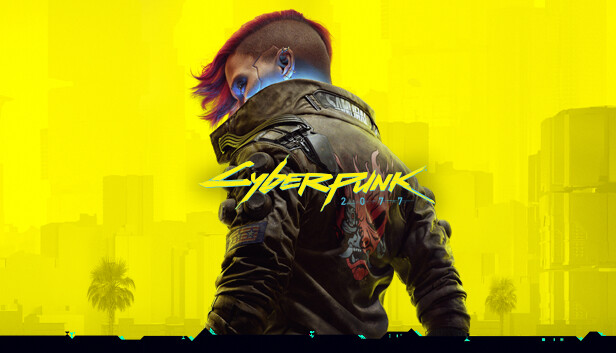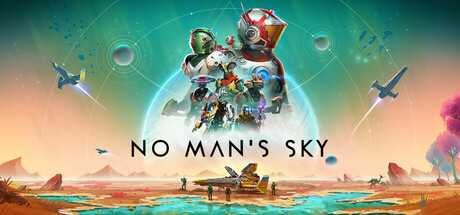In the innovative world of IT where the competition is more intense than anywhere else, it is bound that most companies and products will inevitably fail. I will talk about some interesting cases where games caused an uproar upon their release as they sadly failed to meet customers' expectations.
The first one on my list and additionally the most recent game is Cyberpunk 2077 which was released less than 2 months ago. Cyberpunk is an open-world action role-playing video game that was released on PC, next-generation consoles (Xbox Series X and PlayStation 5), and older consoles like PlayStation 4 and Xbox One. The game was already announced in 2012 and the game gathered major attraction pretty much from the start. The game was in development for over 8 years and the hype for the game grew especially as the developing company was CD Projekt Red, a company that is infamous for their successful Witcher series. I also had really high hopes for the game knowing that the same company who made my all-time favorite game - The Witcher III: Wild Hunt - was behind the production. The game's initial release was postponed multiple times, which already indicated that the team was falling behind their schedule and something wasn't quite right. And that actually was the case. As the developers later have said themselves, the management was aware that the game is not ready for release but they refused to listen to the developers' warnings. And so the game was released on the 10th of December. And what we got was an extremely buggy game that was so unplayable on last-gen consoles that the company actually refunded everyone and pulled it off the market for Xbox One and PlayStation 4. And as we later heard from the press, most of the team who worked on the project for countless extra hours didn't even get paid. Hopefully, they will manage to fix the major flaws of the game in the future with upcoming updates.
The second game that I would like to mention is Warcraft III: Reforged which was released in January of 2020. The game is a remastered edition of the real-time strategy game Warcraft: Regin of Chaos and its expansion The Frozen Throne which was released back in 2002. The game was developed and published by the somewhat controversial company - Blizzard Entertainment. The fans were excited for a remastered version of the game, offering improved graphics, new characters, and more. But upon release, the fans were furious, to say the least. The game lacked features that were promised prior to release and more importantly they removed some features that were present in the original game. In addition, the other engine changes were patched over the original Warcraft III game so everyone who owned the previous game couldn't play the original any more and had to play the new version which pretty much everyone hated. And after the game's launch, it managed to get the lowest user score on any video game ever on Metacritic. But at least in February of 2020 they finally agreed to refund people who weren't happy with the game. I think this is an example of a good game that was just remade because the company wanted to make more money, as they clearly did not listen to the fans and just ruined one of the greatest games that they have released.
Lastly, I would like to talk about No Man's Sky which is an exploration survival game developed and published by a small game company called Hello Games. This was also a game that was really over-hyped in my opinion. The game was announced in 2013 but got released in August of 2016. Prior to the release, one of the co-founders of the company and a developer on the team, gave multiple interviews during the development showing features that had been planned to be in the game. One of the main things that he mentioned was that it would be multiplayer, so you could possibly meet other players in the open-world game. But in fact, when the game got released it was missing pretty much all of the features that they were advertising in their promotional videos and interviews. And the biggest uproar came from the fact that it had no multiplayer function whatsoever. Overall the game got quite a negative reputation upon release. The main reasoning being an incredibly small development team of 10 people behind such a big game. But the team stuck to the game and didn't give up and kept working on the game. And so a few years later through hard work, they released massive updates and a free DLC which really made a massive comeback and now only gets praise and positive feedback. And I believe that this is a great example of a product that flopped upon release, yet made it after all.
Sources:
https://cdn.akamai.steamstatic.com/steam/apps/1091500/capsule_616x353.jpg?t=1611329669
https://www.metacritic.com/game/pc/cyberpunk-2077
https://www.cyberpunk.net/ee/en/
https://i.ytimg.com/vi/Odmvx-T8uJc/maxresdefault.jpg
https://www.metacritic.com/game/pc/warcraft-iii-reforged
https://www.pcgamer.com/warcraft-3-reforged-controversy/
https://cdn.akamai.steamstatic.com/steam/apps/275850/header.jpg?t=1606325215'https://www.metacritic.com/game/pc/no-mans-sky
https://www.androidcentral.com/no-mans-sky-may-be-comeback-story-generation-and-more-developers-should-follow-hello-games



Comments
Post a Comment